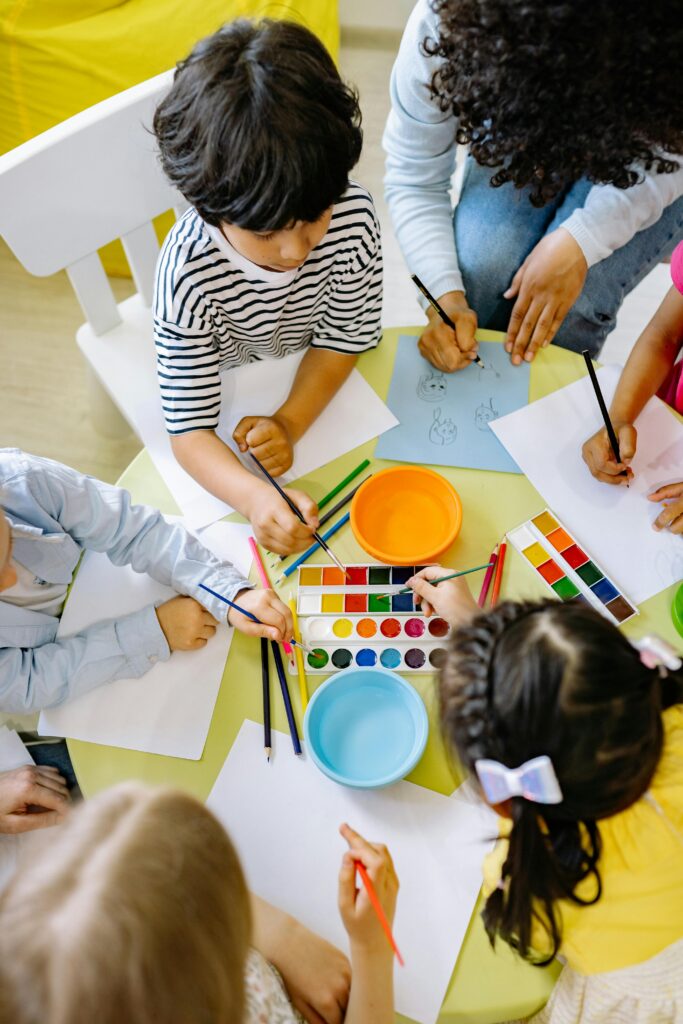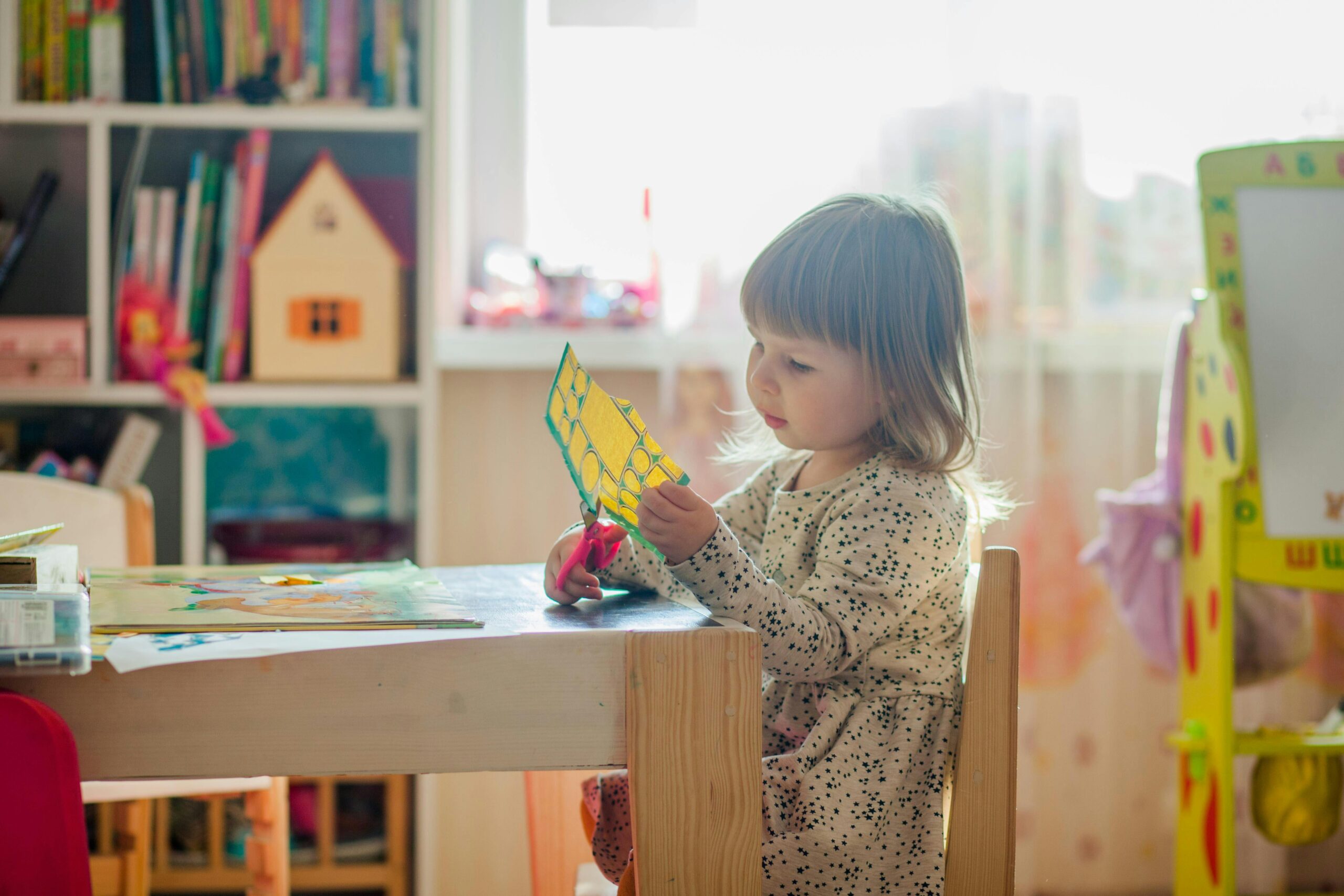Ontario Kindergarten Curriculum: A Brief Overview for Parents
When your little one starts kindergarten, it’s not just about playtime and making friends – although that’s definitely part of it! In Ontario, the kindergarten curriculum is designed to nurture both learning and personal development in a fun, engaging way. But what exactly will your child learn in these formative years? Let’s dive into a brief overview of the Ontario kindergarten curriculum and explore how it lays the foundation for a love of learning.
Play-Based Learning: The Heart of Kindergarten
The Ontario kindergarten curriculum centers around play-based learning, which is a fancy way of saying your child will learn through play. This approach encourages children to explore, experiment, and discover the world around them while building essential skills. Whether it’s a group activity in the classroom or imaginative play during recess, these moments are carefully designed to enhance your child’s learning experience.
You’ll notice your child will be exposed to different types of play, such as dramatic play (think pretend kitchen setups), creative play (arts and crafts), and physical play (running and jumping). Each type of play helps them develop cognitive, emotional, and social skills that are important not only for school but for life.
What’s great about play-based learning is that it allows your child to take charge of their learning. They’ll follow their natural curiosity, ask questions, and figure things out on their own, all while having fun. The best part? They might not even realize they’re learning!
Language and Literacy: Building Strong Foundations
One of the key areas of focus in the kindergarten curriculum is language and literacy. Your child will develop early reading and writing skills that form the foundation for future academic success. This doesn’t mean your child will be reading chapter books right away, but they’ll start recognizing letters, sounds, and even some basic sight words.
Teachers use a variety of activities to support language development, such as storytelling, singing, and rhyming games. You’ll probably hear your child singing catchy songs they’ve learned in class or telling you about the latest book they “read” with their teacher. This exposure to language helps your child build vocabulary, improve listening skills, and develop a love for reading.
Writing in kindergarten starts small – think drawing pictures and scribbling their name – but these early attempts are a big step toward becoming confident writers. Encourage your child to practice writing at home by drawing or writing little notes for family members. It’s all part of fostering a love for language!
Mathematics: Numbers in Everyday Life
Don’t be surprised if your child suddenly starts pointing out numbers everywhere, from the grocery store aisle to your phone’s clock. The Ontario kindergarten curriculum introduces children to basic math concepts in a hands-on, playful way. Through counting games, sorting activities, and puzzles, your child will begin to understand numbers, shapes, and patterns.
One fun way math is taught in kindergarten is by relating it to everyday life. Whether it’s counting how many steps it takes to reach the playground or sorting colored blocks into groups, math is integrated into daily activities so your child can see its relevance. This makes learning math feel more natural and enjoyable.
At this stage, it’s all about building number sense and fostering a positive attitude toward math. If your child is excited about numbers, they’re more likely to embrace math as they progress through school. So next time they count all the apples in the fruit bowl, give them a high five – they’re practicing important skills!
Social and Emotional Learning: Growing Confidence and Friendships
In addition to academics, the Ontario kindergarten curriculum places a big emphasis on social and emotional learning. Kindergarten is often the first time children interact with a large group of peers, and it’s important for them to learn how to share, take turns, and solve conflicts. Through group activities, your child will develop important social skills that help them navigate friendships and teamwork.
You’ll notice your child learning how to express their emotions in a healthy way. Whether it’s talking about how they feel when they’re upset or celebrating a friend’s success, these moments of emotional growth are crucial. Teachers use role-playing and storytelling to help children understand empathy, kindness, and the importance of respecting others.
One of the most rewarding parts of kindergarten is watching your child become more confident. As they develop social and emotional skills, they’ll start to feel more comfortable in their environment. That confidence translates into greater independence and a willingness to take on new challenges, both inside and outside the classroom.
Encouraging Creativity: Art, Music, and Drama
In Ontario’s kindergarten program, creativity is celebrated in every way. Children have plenty of opportunities to explore art, music, and drama, which helps them express themselves and think outside the box. From finger painting to playing musical instruments, your child will have the chance to try different forms of artistic expression.
Art activities, such as drawing, painting, and crafting, are not only fun but also help with fine motor skills. Your child will learn how to use tools like scissors and glue while creating masterpieces that reflect their imagination.
Music and drama also play a big role in the curriculum. Singing, dancing, and acting out stories help children develop rhythm, coordination, and storytelling skills. These activities also boost your child’s confidence as they learn to perform in front of others, even if it’s just a small classroom audience.
The Importance of Outdoor Play and Physical Activity
Outdoor play is an essential part of the Ontario kindergarten curriculum. Whether it’s running around on the playground or exploring nature during a walk, physical activity helps children develop motor skills and stay healthy. Outdoor playtime also encourages curiosity about the natural world, fostering an early appreciation for the environment.
Physical activity doesn’t just help with fitness – it also contributes to cognitive and social development. Games that involve teamwork, problem-solving, and physical challenges give children the chance to practice new skills while having fun. So, when your child comes home talking about their latest playground adventure, know that they’ve been learning just as much outside as they do inside the classroom.

Immunizations and Health Records: What Parents in Ontario Need to Know
As a parent in Ontario, you’ll have a few important documents to keep track of as your child grows. One of the most essential items on your list? Immunization records and health information. These documents are crucial for your child’s safety and well-being, and they play an important role in their education too. But don’t worry – we’re here to make sense of it all so you can stay on top of what’s required without stress.
Let’s break down what you need to know about immunizations, health records, and the necessary steps to ensure your child is ready for school.
The Importance of Immunizations: Keeping Your Child and Community Safe
Vaccines aren’t just about protecting your child – they help keep the entire community healthy. Ontario has a set immunization schedule that’s designed to protect kids from serious illnesses, such as measles, mumps, and whooping cough. Your child will need to receive these vaccines at certain stages in their early life, and you’ll need to provide proof of their vaccinations to their school or daycare.
Most of the required vaccinations are given during your child’s routine checkups with your family doctor or pediatrician. It’s a good idea to mark these dates in your calendar so you don’t miss any important shots. After all, staying up-to-date with vaccinations is one of the simplest ways to keep your child healthy and safe.
If you’re wondering, “Why so many shots?” – don’t worry, you’re not alone. Immunizations might seem like a lot to keep track of, but they’re carefully spaced out to give your child the best protection at the right times. Plus, most of the vaccines are combined into one injection, which makes the process easier for both you and your child.
Immunization Records: What You Need to Provide
Once your child has received their vaccinations, it’s important to keep track of their immunization records. In Ontario, children attending public school or licensed daycare must show proof of immunization or submit a valid exemption. The easiest way to keep track of this is by updating your child’s immunization record through your local public health unit.
You’ll need to provide this information before your child starts school, and it’s your responsibility to make sure their record stays current. Schools in Ontario are required to keep immunization records for all students, so if your child receives a new vaccination, don’t forget to update the school with that information.
If your child has received vaccines outside of Ontario or Canada, you’ll need to provide those records as well. Your local public health unit can help you translate and transfer these immunizations into the proper format. The goal is to make sure your child’s vaccination record is up-to-date and accepted by their school.
Some parents may choose not to immunize their children for medical or personal reasons. If that’s the case, you’ll need to file a valid exemption. Ontario allows for two types of exemptions: medical and non-medical (based on personal or religious beliefs). For a medical exemption, you’ll need a doctor’s note, and for non-medical exemptions, you must complete an education session at your local public health unit. Schools will still require this paperwork on file.
What Happens If Your Child Misses a Vaccine?
Life happens, and sometimes vaccines get missed. But don’t worry – there’s always a chance to catch up! If your child misses any of their scheduled immunizations, contact your doctor or local public health unit to make an appointment. Ontario’s healthcare system offers free vaccines, so it’s easy to stay on track or catch up when needed.
Some schools or public health units might send you a reminder if your child is missing an important vaccine, which is a helpful nudge to schedule an appointment. It’s better to get these taken care of sooner rather than later to avoid any gaps in protection.
Remember, if your child misses a vaccine, it doesn’t mean you’ve fallen behind – life is busy! Just make sure to check with your healthcare provider, and they’ll help get your child back on schedule without any fuss.
Health Records: What You Should Keep on Hand
Immunization records are just one piece of your child’s health puzzle. You’ll also need to maintain a file with other health information, like doctor’s reports, allergy information, and any special health needs your child might have. These records can be useful when registering your child for school or other programs like sports or summer camps.
If your child has a medical condition, make sure the school is aware and that you have a health plan in place. For example, if your child has asthma, the school will need to know about it, and you may need to provide an asthma action plan. The same goes for allergies – schools are very vigilant about keeping kids safe from allergens, but it’s still important to provide clear information about any food or environmental allergies your child has.
It’s a good idea to keep copies of important health documents, like your child’s OHIP card and any medication prescriptions. This way, you’ll always have the information handy when filling out forms for school or activities. Keeping a small health folder in your home can be a lifesaver, especially when juggling multiple kids!
Staying Informed: Resources for Ontario Parents
Managing your child’s immunizations and health records might feel like a lot, but Ontario provides plenty of resources to help you stay on top of everything. Your local public health unit is a great first stop for questions about immunizations, schedules, and exemptions. They can also help with catching up on missed vaccines and translating immunization records from other regions.
In addition to public health, your child’s school will often send home information about required vaccines or missing records. Keep an eye out for these notices and follow up if you’re unsure about what’s needed.
If you’re ever in doubt, your family doctor is always a good resource. They can explain your child’s immunization needs, help manage health conditions, and provide advice on how to keep your child healthy.

School Registration Process: Easy Steps to Enroll Your Child in an Ontario School
Starting school is a big milestone, and the registration process is the first step in getting your child ready for this exciting adventure. If you’re wondering how to get started, don’t worry – enrolling your child in an Ontario school is simpler than it sounds. With a few important documents and steps, you’ll have your little one signed up in no time. Let’s walk through the school registration process together so you know exactly what to expect!
Step 1: Determine Your Child’s Eligibility
Before you dive into paperwork, the first step is to make sure your child is eligible for school. In Ontario, children who turn four by the end of the calendar year can start Junior Kindergarten (JK). If your child is five years old by the end of the year, they can start Senior Kindergarten (SK). For Grade 1 and above, the minimum age is six years old.
It’s important to note that attendance in Kindergarten isn’t mandatory in Ontario, but most parents choose to enroll their child to give them a head start on learning. If your child is a bit older and you’re transferring from another province or country, you’ll need to find out which grade they’ll be placed in based on their age and previous schooling. You can always talk to the school principal if you have questions about grade placement.
Step 2: Find Your Local School
Next, you’ll need to figure out which school your child will attend. In Ontario, children are usually registered at their local public school, which is determined by your home address. If you’re unsure which school your child should go to, you can check with your local school board or use online school locator tools to find the designated school for your neighborhood.
There are two main public school systems in Ontario: the English Public and the English Catholic system. You’ll choose the one that best fits your family’s preferences. Catholic schools often require proof of baptism, so be sure to have that ready if you’re opting for the Catholic system. If you prefer to send your child to a French-language school, there are French public and French Catholic schools available too.
Step 3: Gather the Necessary Documents
Now that you’ve found the right school, it’s time to gather the necessary documents for registration. This part is pretty straightforward, but it’s important to make sure you have everything ready so there are no delays.
Here’s a list of the key documents you’ll need:
- Proof of your child’s age (birth certificate, passport, or other government-issued ID)
- Proof of address (a utility bill, rental agreement, or property tax bill with your name and address)
- Immunization records (a list of all vaccines your child has received, or an exemption form if applicable)
- Health card number (this might be optional, but it’s good to have it ready just in case)
- Baptismal certificate (only if you’re registering in a Catholic school)
Most schools will accept photocopies of these documents, but it’s a good idea to bring the originals when you register. If any documents are missing, the school will usually allow you to register and follow up later when you have the paperwork.
Step 4: Complete the Registration Form
Once you have all your documents, the next step is to fill out the registration form. You can often find this form on your school board’s website, or you can pick it up from the school office. The form will ask for basic information about your child, such as their name, birthdate, address, and any medical conditions or special needs they might have.
Be sure to fill out the form as accurately as possible. If your child has any allergies or health concerns, mention those so the school can take proper precautions. If English isn’t your child’s first language, there may be additional resources available to support them.
Some schools offer online registration, which makes the process even easier. You’ll upload your documents, fill out the form, and submit everything from the comfort of your home. If online registration isn’t an option, simply bring the completed form and documents to the school office.
Step 5: Attend the Registration Appointment
In some cases, the school may ask you to schedule a registration appointment to complete the process in person. This is a great opportunity to meet the school staff, ask questions, and tour the school if you haven’t already.
During the appointment, a school representative will review your documents and make sure everything is in order. They’ll also explain any additional steps, such as providing emergency contact information or setting up a bus route if your child will be taking the school bus.
If your child has special needs or requires additional support, this is the time to discuss it with the school. The staff will help you create an individualized plan to ensure your child has everything they need to thrive.
Step 6: Receive Confirmation and Prepare for the First Day
Once the registration is complete, you’ll receive confirmation that your child is officially enrolled. The school will likely send you a welcome package with information about the first day of school, school supplies, the school calendar, and any important policies you need to know.
Make sure to read through all the materials, especially if this is your first time enrolling a child. The school might also host a Kindergarten orientation or “meet the teacher” day before school starts. This is a fun way for your child to get familiar with the classroom and meet their teacher and classmates.
Step 7: Keep an Eye on Deadlines and Requirements
After registering your child, there are a few things to keep in mind as the first day of school approaches. Some schools have specific deadlines for submitting additional forms, such as health records, bus transportation requests, or lunch program sign-ups. Make sure to stay on top of these deadlines so your child is ready to go from day one.
If your child is starting Kindergarten, consider preparing them by talking about what to expect at school, reading books about school, or practicing routines like packing a backpack or lunch. It’s also helpful to visit the school grounds with your child before the first day so they can get used to the new environment.

What to Expect in the First Month: Managing Early Jitters and Settling In
The first month of school is a big transition, not only for your child but for you too! It’s perfectly normal for both of you to feel a bit nervous, but don’t worry — this is an exciting time that comes with plenty of opportunities for growth, fun, and new friendships. The key to managing those early jitters is knowing what to expect and helping your child ease into their new routine.
Let’s explore what the first month might look like and how you can help your child feel comfortable and confident as they settle into school life.
Week 1: Facing the First-Day Nerves
The first day of school is filled with excitement, but it can also bring a few jitters. For many children, this is their first experience being away from home for an extended period, so it’s natural for them to feel a bit anxious. You may see a mix of emotions — one minute they’re thrilled, the next they’re clinging to your leg!
To help your child manage first-day nerves, talk about what to expect ahead of time. Share positive stories about school, like the fun activities they’ll get to do and the new friends they’ll meet. Pack a comforting item in their backpack, like a small toy or family photo, to help them feel connected to home.
It’s also important to keep your own emotions in check. If you stay calm and positive, your child will pick up on those vibes. Give them a big hug, reassure them that you’ll be back soon, and watch them bravely walk into their new adventure!
Week 2: Settling Into the Routine
By the second week, your child will begin to adjust to their new routine, but it might still feel a little overwhelming. School days can be long, and getting used to structured activities, new rules, and meeting lots of new faces takes time.
You may notice that your child comes home tired and cranky — this is completely normal! Don’t worry if they aren’t bouncing with excitement after school every day. They’re still processing all the changes and learning how to navigate their new environment.
One of the best ways to support them is by keeping things consistent at home. Establish a morning routine to help the day start smoothly and create a calming bedtime routine to ensure they’re getting enough rest. Also, ask open-ended questions about their day to encourage them to share their experiences: “What was your favorite part of today?” or “Did you meet someone new?”
Week 3: Building Friendships and Confidence
Around week three, your child will likely start feeling more comfortable with their classmates and teachers. Friendships will begin to blossom, and you’ll see their confidence grow. They may come home excited to tell you about their new friends, the games they played at recess, or the latest art project they worked on.
Encourage your child to continue making connections by organizing playdates with their new friends. This helps deepen those relationships outside of the classroom and makes the school environment feel even more familiar. If your child is more introverted, remind them that friendships take time, and it’s okay to take things at their own pace.
This is also a great time to reinforce your child’s positive experiences by celebrating their achievements, no matter how small. Whether they mastered a new skill or remembered to put their hand up before speaking, let them know you’re proud of them for adjusting to their new school life.
Week 4: Handling Challenges and Fostering Independence
By the fourth week, most children have settled into the school routine, but it’s not unusual for some challenges to arise. Your child might struggle with separation anxiety on some days or feel unsure about new tasks or responsibilities. It’s all part of the process of learning and growing.
If your child is feeling a bit stuck, remind them that it’s okay to ask for help. Whether it’s from their teacher or a classmate, knowing they have support can boost their confidence. At home, you can gently encourage independence by letting them take charge of simple tasks, like packing their own lunch or choosing their school clothes.
It’s also important to keep communication open with the teacher. If you have concerns about how your child is adjusting or notice any ongoing issues, don’t hesitate to reach out. Teachers are there to help and often have great insights into how your child is doing in class.
Managing Your Own Jitters
As parents, we often feel as nervous as our children during this big transition. You might wonder if your child is fitting in, making friends, or adjusting well. Remember, it’s okay to feel this way, and it’s a sign that you care deeply about your child’s well-being.
To manage your own jitters, remind yourself that the first month is all about learning — for both of you! Trust that your child is capable of adapting to their new environment, even if it takes a little time. And don’t forget to take care of yourself, too. Connecting with other parents going through the same experience can be a great way to share tips and get support.
Celebrating the Small Wins
The first month of school might feel like a whirlwind, but it’s also full of little victories. Whether your child masters the school bus routine, learns to raise their hand in class, or makes a new friend, these are all important milestones worth celebrating.
Take the time to acknowledge these small wins and remind your child how proud you are of them. You could even create a fun “first month of school” tradition, like a special family dinner or an after-school treat, to celebrate how far they’ve come in such a short time.
Check out Top Tips for Kindergarten Transition!
Do you feel your kid is gifted? Check out how to identify a gifted kid !
Do want your child to excel at Math and Science? Check more information about the Math Olympiads and Science Competitions in Ontario!

